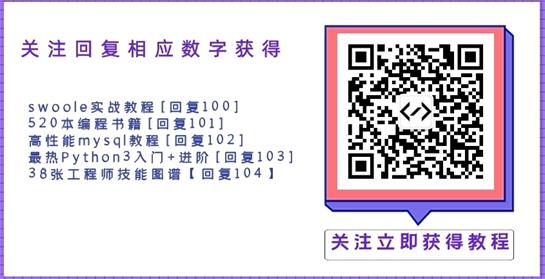今天我们来讲一个最简单的表单提交处理的例子,通过提交一个表单给朋友打一声招呼!
看这边文章之前,你至少应该了解基于Spring的Web开发的基础知识,当然,你还是应该准备好开发环境:
- IDE+Java环境(JDK 1.7或以上版本)
- Maven 3.0+(Eclipse和Idea IntelliJ内置,如果使用IDE并且不使用命令行工具可以不安装)
准备POM文件
POM.xml
<?xml version="1.0" encoding="UTF-8"?> <project xmlns="http://maven.apache.org/POM/4.0.0" xmlns:xsi="http://www.w3.org/2001/XMLSchema-instance" xsi:schemaLocation="http://maven.apache.org/POM/4.0.0 http://maven.apache.org/xsd/maven-4.0.0.xsd"> <modelVersion>4.0.0</modelVersion> <groupId>com.tianmaying</groupId> <artifactId>springboot-form-submission-demo</artifactId> <version>0.0.1-SNAPSHOT</version> <packaging>jar</packaging> <name>springboot-form-submission-demo</name> <description>Springboot form submission demo</description> <parent> <groupId>org.springframework.boot</groupId> <artifactId>spring-boot-starter-parent</artifactId> <version>1.2.5.RELEASE</version> <relativePath/> </parent> <properties> <project.build.sourceEncoding>UTF-8</project.build.sourceEncoding> <java.version>1.8</java.version> </properties> <dependencies> <dependency> <groupId>org.springframework.boot</groupId> <artifactId>spring-boot-starter-thymeleaf</artifactId> </dependency> <dependency> <groupId>org.springframework.boot</groupId> <artifactId>spring-boot-starter-test</artifactId> <scope>test</scope> </dependency> </dependencies> <build> <plugins> <plugin> <groupId>org.springframework.boot</groupId> <artifactId>spring-boot-maven-plugin</artifactId> </plugin> </plugins> </build> </project>
创建Controller
我们已经知道可以通过Controller来进行URL路由,Spring WebMvc框架会将Servlet容器里收到的HTTP请求根据路径分发给对应的@Controller类进行处理、而 @RequestMapping注解表明该方法处理那些URL对应的HTTP请求。
我们的SayHelloController的代码如下:
package com.tianmaying.springboot.formsubmission;
import org.springframework.stereotype.Controller;
import org.springframework.ui.Model;
import org.springframework.web.bind.annotation.ModelAttribute;
import org.springframework.web.bind.annotation.RequestMapping;
import org.springframework.web.bind.annotation.RequestMethod;
@Controller
public class SayHelloController {
@RequestMapping(value="/sayhello", method=RequestMethod.GET)
public String sayHelloForm(Model model) {
model.addAttribute("helloMessage", new HelloMessage());
return "sayhello";
}
@RequestMapping(value="/sayhello", method=RequestMethod.POST)
public String sayHello(@ModelAttribute HelloMessage helloMessage, Model model) {
model.addAttribute("helloMessage", helloMessage);
return "message";
}
}
- 针对
/sayhello的GET请求,我们返回提交表单的页面,即sayHello.html - 针对
/sayhello的POST请求,我们进行表单的处理,然后将打招呼的信息渲染到message.html页面返回。
表单处理也无外乎这两件事情:显示表单,处理表单提交。
显示表单
/sayhello的GET请求里,在渲染页面之前,我们通过model.addAttribute("helloMessage", new HelloMessage());告诉页面绑定到一个空的HelloMessage对象,这样sayHello.html页面初始时就会显示一个空白的表单。
HelloMessage
package com.tianmaying.springboot.formsubmission;
public class HelloMessage {
private String name;
private String message;
public String getName() {
return name;
}
public void setName(String name) {
this.name = name;
}
public String getMessage() {
return message;
}
public void setMessage(String message) {
this.message = message;
}
}
仅仅扔一个空白对象给表单还不够,你还得告诉表单的各个输入如何绑定到对象的各个属性上。这个时候我们要用上Themeleaf了。
<!DOCTYPE HTML>
<html xmlns:th="http://www.thymeleaf.org">
<head>
<title>自学编程网: Spring表单提交处理</title>
<meta http-equiv="Content-Type" content="text/html; charset=UTF-8" />
</head>
<body>
<h1>表单处理演示</h1>
<form action="#" th:action="@{/sayhello}" th:object="${helloMessage}" method="post">
<p>friend: <input type="text" th:field="*{name}" /></p>
<p>message: <input type="text" th:field="*{message}" /></p>
<p><input type="submit" value="Submit" /> <input type="reset" value="Reset" /></p>
</form>
</body>
</html>
th:action="@{/sayhello}"表示将表单提交的POST请求交给/sayhello这个URL来处理th:object="${helloMessage}"表示用来搜集的表单数据的对象时helloMessage,即用户输入信息将存储于这个对象中- 两个表单域分别增加了属性
th:field="*{name}"和th:field="*{message}",这就是将一个表单域绑定到特定的对象属性
处理表单
把处理表单的Controller代码再单独拿出来:
@RequestMapping(value="/sayhello", method=RequestMethod.POST)
public String greetingSubmit(@ModelAttribute HelloMessage helloMessage, Model model) {
model.addAttribute("helloMessage", helloMessage);
return "message";
}
处理表单就非常简单了,通过@ModelAttribute,我们可以直接通过helloMessage对象来处理用户提交的信息了。
从最早JSP和Servlet时代过来的人,对从request中根据参数名称逐个获取信息,然后自己去设置对应对象属性的场景一定会历历在目,那叫惨绝人寰哪。现在我们只需专注于Model的业务逻辑处理了,Spring MVC和Thymeleaf这对黄金组合帮我们搞定了表单和对象绑定这样繁琐的事情。
Run起来
这应该是你很熟悉的代码了:
package com.tianmaying.springboot.formsubmission;
import org.springframework.boot.SpringApplication;
import org.springframework.boot.autoconfigure.SpringBootApplication;
@SpringBootApplication
public class App {
public static void main(String[] args) {
SpringApplication.run(App.class, args);
}
}
SpringBootApplication标注做的事情参考这里,mvn spring-boot:run或在IDE中运行main()方法就可以看到效果了!不用装Web服务器不用部署就能直接Run Web应用的感觉确实很酸爽!
当然,一个成熟的应用,通常还需要做表单的验证操作,即确保用户提交上来的数据是合法而且有效的!且待下回分解!
以上就是Spring如何处理表单提交的详细内容,更多关于Spring处理表单提交的资料请关注自学编程网其它相关文章!

- 本文固定链接: https://zxbcw.cn/post/197287/
- 转载请注明:必须在正文中标注并保留原文链接
- QQ群: PHP高手阵营官方总群(344148542)
- QQ群: Yii2.0开发(304864863)
